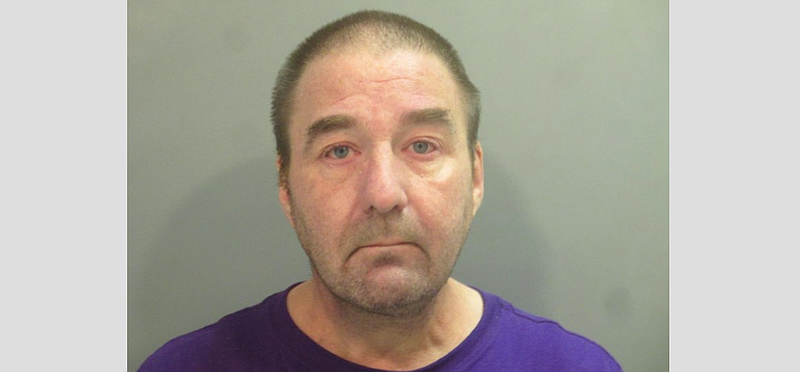FAYETTEVILLE -- The pathologist convicted of manslaughter in the death of a patient at the Veterans Health Care System of the Ozarks largely supervised himself, according to a Department of Veterans Affairs report issued Wednesday.
"Facility leaders failed to promote a culture of accountability," says the report by the department's Office of Inspector General. "The OIG found a culture in which staff did not report serious concerns about Dr. Levy, in part because of a perception that others had reported or they were concerned about reprisal. Any one of these breakdowns could cause harmful results. Occurring together and over an extended period of time, the consequences were devastating, tragic and deadly," according to the report.
Robert Morris Levy, 54, received a 20-year prison sentence in January for involuntary manslaughter in the death of a veteran from a missed diagnosis. That veteran was one of 33,902 cases Levy had a hand in since 2005. Levy's role at the health care system was to examine test results of tissue and fluid samples to determine illnesses, if any.
Levy went to work intoxicated, going so far as to use an exotic drug to remain intoxicated after being caught drunk on the job in 2016, getting substance abuse treatment and a second chance. The drug, 2m-2b, cannot be found with blood or urine tests for alcohol. The health care system required Levy to submit blood and urine samples for testing as a condition of reinstating his employment.
Levy got out of substance abuse rehabilitation in mid-October 2016 and started researching the drug as an alcohol alternative by the next month, according to court testimony. He subsequently passed 42 drug tests in a two-year period.
He was caught after a March 1, 2018 arrest. A Washington County Sheriff 's deputy stopped him outside of the U.S. Post Office on Dickson Street in Fayetteville and summoned police, believing Levy was too drunk to drive.
After Levy failed a field sobriety test, a Fayetteville Police Department breathalyzer test reported an "interfering substance" result. What that substance was remained a mystery until the U.S. Department of Veterans Affairs Inspector General's Office investigated, finding Levy's internet orders of the drug.
Levy's DUI arrest in Fayetteville triggered an independent review of all his cases at the health center. That review found 30 cases in which his incorrect diagnosis proved to have serious medical consequences. The 30 were from a total of 592 cases where there was a missed diagnosis serious enough to have risked the patient's health.
Having a team of 53 pathologists review 33,902 cases with more than 300,000 tissue samples cost taxpayers $2.1 million, according to court testimony in Levy's case. That doesn't include the cost of paying the regular salaries of federal employees, including many of the pathologists who were diverted from other tasks for the review. The review lasted a year and a half.
"As Path and Lab Service Chief, Dr. Levy was responsible for the facility's path and lab quality management program," the inspector general found. He "controlled all aspects of the quality management program in a service with only one other pathologist," who was a subordinate of Levy.
"The involvement of a subordinate in the peer review process of a supervisor creates an inherent conflict of interest," the report found. In addition; "It was determined that Dr. Levy was entering concurrence statements into some patients' electronic health records when a second pathologist had not agreed with the interpretation or diagnosis."
This went on for 12 years, the study noted.
The health care system's chief of staff got a complaint Levy smelled of alcohol at least as early as 2014, but took no action, the report found. Then, in September 2015, a hospital staff member reported Levy showed up smelling of alcohol and showing red eyes and hand tremors. He showed up for a review of the complaint in October -- "and smelled of mouthwash, had red glassy eyes, and exhibited hand tremors," according to the report.
"In March 2016, Dr. Levy was reported for signs of impairment, agreed to testing and was discovered to have a high blood alcohol content level," the report says. He was enrolled in a treatment program and allowed to return to work on the condition he submit to regular testing.

